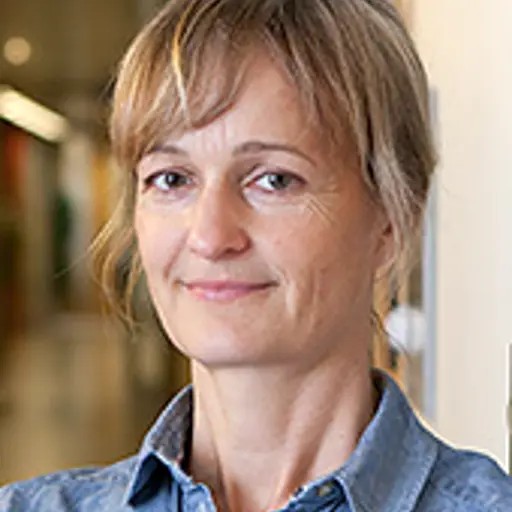The course syllabus contains changes
See changesCourse syllabus adopted 2020-02-10 by Head of Programme (or corresponding).
Overview
- Swedish nameCirkulär ekonomi
- CodeTEK680
- Credits7.5 Credits
- OwnerMPTSE
- Education cycleSecond-cycle
- Main field of studyEnergy and Environmental Systems and Technology
- DepartmentTECHNOLOGY MANAGEMENT AND ECONOMICS
- GradingTH - Pass with distinction (5), Pass with credit (4), Pass (3), Fail
Course round 1
- Teaching language English
- Application code 28112
- Maximum participants50
- Block schedule
- Open for exchange studentsYes
Credit distribution
Module | Sp1 | Sp2 | Sp3 | Sp4 | Summer | Not Sp | Examination dates |
|---|---|---|---|---|---|---|---|
| 0119 Examination 7.5 c Grading: TH | 7.5 c |
|
In programmes
- MPAEM - MATERIALS ENGINEERING, MSC PROGR, Year 2 (elective)
- MPDES - INDUSTRIAL DESIGN ENGINEERING, MSC PROGR, Year 2 (elective)
- MPMAR - MARITIME MANAGEMENT, MSC PROGR, Year 2 (elective)
- MPPEN - PRODUCTION ENGINEERING, MSC PROGR, Year 2 (elective)
- MPSES - SUSTAINABLE ENERGY SYSTEMS, MSC PROGR, Year 2 (elective)
- MPTSE - INDUSTRIAL ECOLOGY, MSC PROGR, Year 1 (compulsory elective)
- MPTSE - INDUSTRIAL ECOLOGY, MSC PROGR, Year 2 (elective)
Examiner
 Maria Ljunggren
Maria Ljunggren- Associate Professor, Environmental Systems Analysis, Technology Management and Economics
Eligibility
General entry requirements for Master's level (second cycle)Applicants enrolled in a programme at Chalmers where the course is included in the study programme are exempted from fulfilling the requirements above.
Specific entry requirements
English 6 (or by other approved means with the equivalent proficiency level)Applicants enrolled in a programme at Chalmers where the course is included in the study programme are exempted from fulfilling the requirements above.
Course specific prerequisites
Basic university-level knowledge in environmental science or environmental engineering.Aim
The course aims to provide students with a rich understanding of the merits and challenges of transitioning to a more resource-efficient and circular economy. Drawing from multiple disciplines, including engineering, management and sustainability sciences, students gain knowledge on underlying principles and visions as well as theory and tools that support the formulation and assessment of resource-efficient and circular measures. By exploring real-world examples, students synthesize and apply the knowledge gained.Learning outcomes (after completion of the course the student should be able to)
- Describe historic and future projections of natural resource use and associated sustainability challenges.
- Describe visions and underlying principles of various approaches to resource-efficiency and circular economy.
- Critically discuss the implications of increased resource-efficiency and circularity for sustainable development.
- Account for actors, their options, barriers and drivers for transitioning to a more resource-efficient and circular economy.
- Account for resource-efficient and circular physical measures, their potential benefits and limitations.
- Formulate measures towards increased resource-efficiency and circularity based on relevant theories, methods and tools from multiple disciplines.
- Assess measures towards increased resource-efficiency and circularity based on relevant theories, methods and tools from multiple disciplines.
- Communicate orally and in writing the knowledge and skills acquired.
Content
A more circular economy is suggested as an essential contribution to a more sustainable, low carbon, resource-efficient and competitive economy. Measures over the full life cycle - from design and production to use, reuse, repair, remanufacturing and recycling - are suggested as a way of maintaining the value of products, components, materials and elements for as long as possible. This may also create new opportunities for and requirements on businesses, users and policy makers across various stages of the value chain.
The course aims to provide a rich understanding of the circular economy, its opportunities and limitations as well as concrete examples of resource-efficient and circular solutions put into practice. It covers theory, methods and tools from product design, production engineering, waste management, industrial ecology, supply chain management and public policy, presented in the context of the circular economy. Intended for students from various disciplines, it encourages a combination previous and new knowledge into a comprehensive understanding of the circular economy.
Consisting of four themes, the first one presents roots, rationales and core elements of resource-efficiency and the circular economy. Applying a systems perspective, both physical resource flows and actors are traced over life cycles including options for and implications of change. The second theme addresses design, manufacturing, use, reuse, repair, remanufacturing, recycling and waste management. The third theme deals with managing change in business and through public policy. As a parallel fourth theme, real-world examples of resource-efficient and circular solutions are explored through various disciplinary lenses, aiming for gradual synthesis and application of the course content.
Organisation
The course is comprised by a series of lectures given by lecturers from various disciplines and by invited guests from industry and authorities. There are several major stand-alone exercises as well as shorter ones integrated in the lectures. A larger project is conducted in multi-disciplinary groups. Attendance at certain compulsory course activities is required to pass the course.
Literature
The literature is a collection of articles and reports available electronically at Chalmers library, google scholar or at the course website. All lectures slides (including guests) are part of the course requirements. The literature is announced at the course website no later than two weeks before the course starts.Examination including compulsory elements
The examination of the course comprises of an individual written exam, written and oral presentation of the group project and individual tasks. The final course grade is determined by the exam and the group project results. Attendance at certain compulsory course activities is required to pass the course.The course syllabus contains changes
- Changes to examination:
- 2020-09-30: Grade raising No longer grade raising by GRULG
- 2020-09-30: Grade raising No longer grade raising by GRULG
- 2020-09-30: Grade raising No longer grade raising by GRULG